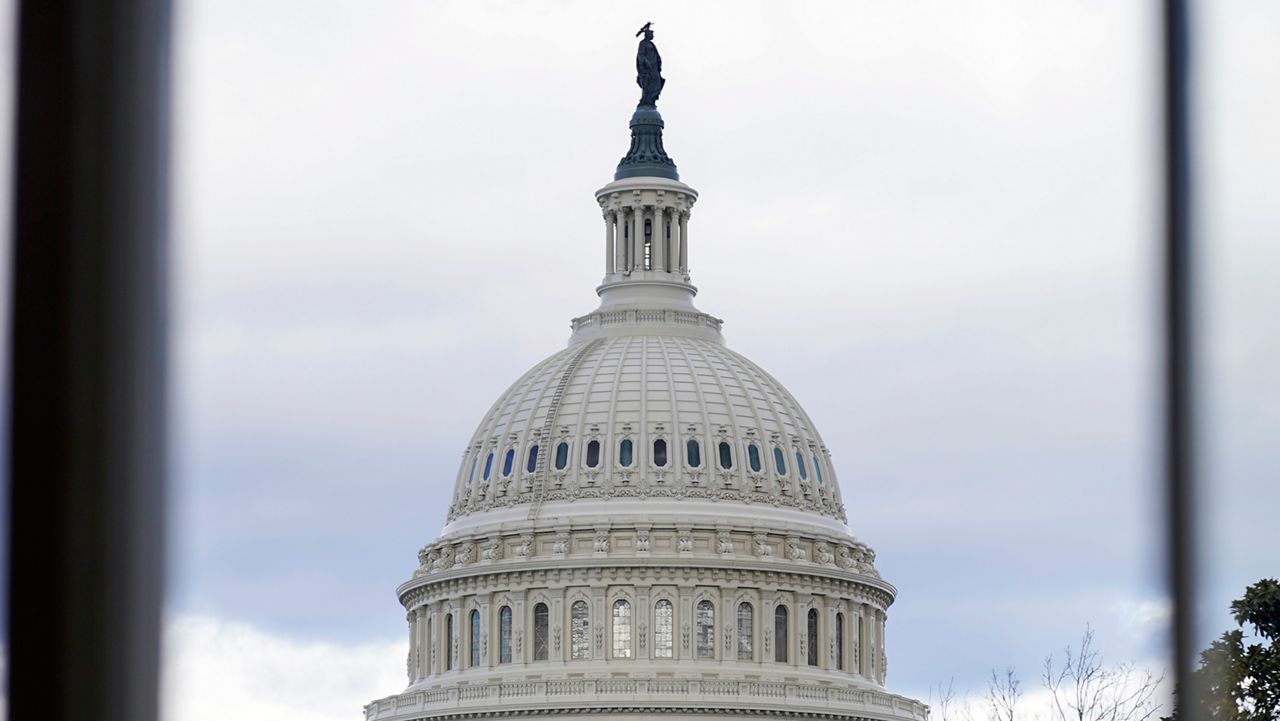A Democratic election law firm on Monday filed a lawsuit against the New York State Board of Elections, claiming the current boundaries of New York’s 11th Congressional District disenfranchise Black and Latino voters.
The district, currently served by Republican Rep. Nicole Malliotakis, includes Staten Island and parts of southern Brooklyn, including most of Bay Ridge, Dyker Heights and Bensonhurst.
What You Need To Know
A Democratic election law firm on Monday filed a lawsuit against the New York State Board of Elections, claiming the current boundaries of New York’s 11th Congressional District disenfranchise Black and Latino voters
The district, currently served by Republican Rep. Nicole Malliotakis, includes Staten Island and parts of southern Brooklyn, including most of Bay Ridge, Dyker Heights and Bensonhurst
The suit comes amid a national fight over congressional boundaries ahead of next year’s midterm elections, which will determine control of the narrowly divided U.S. House
The suit, filed by Elias Law Group on behalf of four registered New York City voters, seeks a redrawn District 11 comprising Staten Island and lower Manhattan.
The Black and Latino population on Staten Island increased from around 11% to nearly 30% between 1980 and 2020, while the borough’s white population declined from around 85% to 56%, the lawsuit says.
District 11’s boundaries, however, fail to take those changes into account, violating the New York Constitution by “unlawfully diluting the votes of Black and Latino voters,” the suit charges.
“CD-11’s antiquated boundaries instead confine Staten Island’s growing Black and Latino communities in a district where they are routinely and systematically unable to influence elections for their representative of choice, despite the existence of strongly racially polarized voting and a history of racial discrimination on Staten Island,” it says.
The existing map “fails entirely to account for a long history of discrimination facing Black and Latino residents of Staten Island,” it adds.
“Staten Island is one of the most segregated parts of New York, with the vast majority of Black and Latino residents confined to the Island’s North Shore while white residents occupy the more affluent South Shore,” it goes on to say. “That segregation has consequences: Black and Latino voters generally live in areas where Black and Latino residents make up a significant majority, and many of those neighborhoods have significant populations that are classified as low-to-moderate income.”
The lawsuit argues a redrawn map would give Black and Latino voters the same chance as other District 11 voters to elect their preferred candidates.
It comes amid a national fight over congressional boundaries ahead of next year’s midterm elections, which will determine control of the narrowly divided U.S. House.
President Donald Trump has pressured Republican-led states to redraw House districts to increase his party’s chances of maintaining control of the House, leading to a flurry of redistricting efforts across the country. Democrats have launched their own counter measures, but those efforts have often been blunted by laws intended to prevent partisan gerrymandering.
Gov. Kathy Hochul previously saying she would be open to restarting New York state’s redistricting process early next year, but experts have said that would be difficult, as the process would likely require changing the state constitution.
The lawsuit, if successful, could help Democrats in their quest to retake a House majority next year.
In a statement Monday, Malliotakis called the lawsuit a “frivolous” attempt to “upend our congressional district which was drawn by a court-appointed special master and later enacted into state law by the state’s independent redistricting commission, the Democrat-controlled state legislature and Democrat governor.”
“This is a terrible abuse of the legal process by an ultra-partisan Washington law firm that does the bidding of the national Democrat Party in an attempt to tilt the scale to give their party an advantage in next year’s election,” she said.
NY1 has reached out to Hochul’s office and the New York State Board of Elections for comment.

